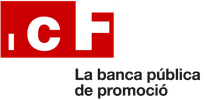We ask the CEO of Institut d'Estudis Financers (IEF), Josep Soler, about the IEF's role and its evolution through the years, its main lines of activity and the importance of financial education for society and companies.

The Institut d’Estudis Financers was founded over 30 years ago. How did the idea of setting it up come about and what was its main purpose?
The Institut d’Estudis Financers (IEF) was envisaged as a Barcelona-based financial knowledge centre which would deliver training for professionals, advocacy, innovation and awareness of fresh financial developments. This was at a time when Catalonia’s clout in the financial industry was waning and we were committed to turning the situation around.
How has the IEF changed over the last 30 years?
It’s grown, largely accomplishing its core aims and with practically no public funding, which is a big ask in education. We’ve been competitive and provided services right across Spain and also abroad.
What are the main strands in your organisation’s current operations?
At present the IEF is engaged in three work strands. The first is training current and future financial practitioners. The second is financial education for the demand side, i.e. for customers and the public in general, to help them make good personal finance choices. Lastly, there is the add-on of outreach, advocacy, consultancy and research in finance.
One of the best-known initiatives is your financial education programmes. What role does financial education play today and how can it help foster an informed and aware society?
Financial education is critical if we are to achieve a society with less “financial fragility” and fewer problems of over-indebtedness and low savings coupled with better prospects for quality of life both in work and in retirement.
Indeed, more financial literacy is essential if society is to be better informed and fully mindful of the importance of saving and making good financial choices.
As finance experts, what do you see as the needs of SMEs and the main challenges in this area?
SMEs are also lagging behind in financial education. Many small entrepreneurs have outstanding product ideas, are hard-working and know how to sell themselves. Yet some of them ought to make better financial decisions. For example, they should be more aware that they have more financing options than banks and that financial management is pivotal.
The ICF is one of the organisations which have been part of the IEF since the outset. What is the public financial institution’s role in the IEF?
The ICF has brought us unique insight into private credit institutions which is both essential and extremely important. Finance is not just banking and equally economic funding doesn’t just come from banks. Public credit, investment management and markets have always been prominent at the IEF.
What are the Institut d’Estudis Financers’ future challenges?
Constantly keeping pace with the huge changes in the sector. The financial industry is increasingly turning to digitalisation and technology, sustainability and psychology for decision-making. Nowadays financial expertise involves harnessing all these topics and skills. The IEF has embraced this approach.
